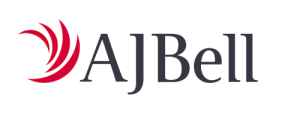July was a turbulent month for equity markets as weaker US economic data stoked fears of recession and led yields in government bond markets lower.
Key measures of manufacturing and services activity in the US were both in contractionary territory in June, while a weaker jobs report showed the unemployment rate moving higher, to 4.1% in June – the highest level since November 2021. The leading ‘Magnificent Seven’ stocks in the US experienced significant losses (as a group, they declined by over 10% from peak and were 2.1% lower on the month), as slowing growth challenged the optimistic outlook for future earnings. This, coupled with weaker inflation data, raised expectations for interest-rate cuts, with approximately three cuts from the US Federal Reserve (Fed) now expected by the market by year-end.
Across key regions, Japan (+4.5%), the UK (+3.0%) and Europe (+0.8%) delivered outperformance versus the global benchmark in sterling terms, while the US (-0.3%) and China (-2.6%) lagged. The market’s knee-jerk reaction to the US jobs report was felt strongly in Japan, with the Nikkei down by over 10% in local currency terms from the recent peak. However, the yen was the best-performing G10 currency in July, strengthening by over 7% against the US dollar and supporting sterling returns as markets moved to price earlier cuts to US rates. Strong performance from financials over July helped to drive UK shares higher, with NatWest Group (18.1%) a top contributor to relative returns for our European strategy over the month, which delivered outperformance versus its benchmark.
Lennar Corp (+16.6%) – one of the largest home construction companies in the US – was one of the Trust’s strongest performers in July, as the US homebuilding sector rallied on hopes that the Fed will now begin easing in coming months. CRH Plc (+12.5%) – the Irish building supplies giant – was another top contributor to relative returns. The company announced upgrades to earnings guidance, with management noting that CRH continues to benefit from significant non-residential investment and infrastructure activity in North America. In contrast, the Trust’s underweight positions in Apple (+3.8%) and Tesla Motors (+15.4%) detracted from relative returns. Apple reported solid results for the quarter, with earnings from its services business offsetting a decline in iPhone sales and a continued slowdown in China. Tesla benefited from a better-than-expected report on car deliveries, with total deliveries of 443,956 vehicles in the second quarter versus the 439,000 analysts had expected.
We ended the month at a discount of 7.3%, narrowing meaningfully from 11.7% in June. Net gearing (borrowing) continued to be conservative at 4.7% (with debt at fair value) for month-end.











